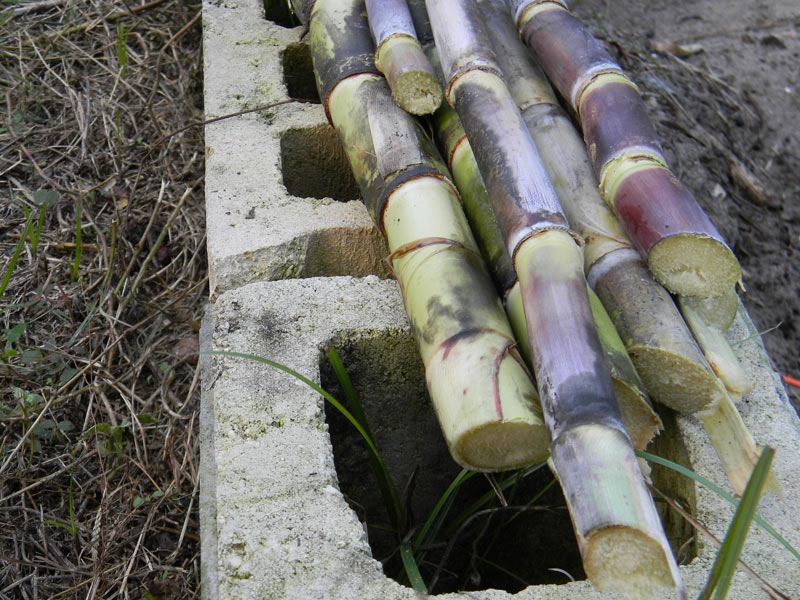Why Cane Sugar Processing Chemicals Are Vital for Modern Sugar Refining
The role of walking stick sugar handling chemicals in modern sugar refining can not be overstated, as they are essential to enhancing both the efficiency of removal and the general high quality of the final product. Agents such as phosphoric acid and specific flocculants are employed to remove contaminations, resulting in sugar that not just fulfills customer assumptions yet also sticks to sector requirements.
Role of Processing Chemicals
The effectiveness of walking cane sugar handling pivots dramatically on the strategic application of processing chemicals. These chemicals play a critical role in enhancing the performance and quality of sugar extraction and refining. From the initial phases of juice removal to the final filtration actions, processing chemicals help with various essential operations.
In the removal phase, chemicals such as phosphoric acid and calcium hydroxide are employed to maximize the clarification process, helping to remove contaminations and suspended solids from the cane juice. This not only improves the return but also ensures the clarity of the end product. Additionally, agents like flocculants help in the rapid settling of contaminations, therefore streamlining the total process.
Turned on carbon and ion exchange resins serve to remove color and smell, ensuring that the refined sugar satisfies customer quality standards. Hence, the meticulous choice and application of these chemicals are crucial for attaining optimum outcomes in walking stick sugar processing.
Trick Kinds of Chemicals
Cane sugar processing counts on a selection of key chemicals that help with each phase of production. These chemicals play essential roles in making clear, whitening, and cleansing the sugar drawn out from cane.
One primary group of chemicals includes flocculants, such as polyacrylamide, which aid in the clarification process by promoting the aggregation and settling of contaminations. Additionally, calcium hydroxide is frequently utilized to reduce the effects of level of acidity and assist in the elimination of non-sugar elements.
Whitening representatives, such as activated carbon and sulfur dioxide, are utilized to decolorize the syrup, leading to a clearer end product. These chemicals assist get rid of shade substances that might impact the sugar's appearance and bankability.
Additionally, phosphoric acid offers as a pH regulator during the handling phases, guaranteeing optimal problems for the chemical activities included in sugar extraction and purification.
Other vital agents include edta (ethylenediaminetetraacetic acid), which chelates metal ions that can catalyze undesirable responses, and sodium hydroxide, which assists in pH control throughout the refining procedure. Collectively, these chemicals boost efficiency and ensure a top notch cane sugar product.
Advantages for Sugar Top Quality
Typically forgotten, the usage of details processing chemicals significantly boosts the general high quality of cane sugar. These chemicals play an essential role in refining procedures, making certain that the final product meets strict sector criteria for pureness and taste.

Furthermore, processing chemicals help in attaining a constant granulation and texture, which are important for customer acceptance. By regulating the crystallization process, these chemicals ensure that the sugar crystals create uniformly, causing a much more appealing product that liquifies well in various applications.
In addition, making use of these chemicals can enhance the life span of walking cane sugar by decreasing moisture absorption and microbial growth. Overall, the critical application of processing chemicals is vital for supplying high-quality walking cane sugar that satisfies consumer assumptions and industry needs.
Ecological Effect Considerations

Moreover, the energy-intensive nature of sugar refining, worsened by chemical use, frequently causes enhanced carbon discharges. This adds to climate modification and increases issues pertaining to the sustainability of existing refining techniques. In addition, the sourcing of these chemicals might entail practices that endanger biodiversity, such as monoculture farming, which minimizes the durability of agricultural environments.

To alleviate these effects, sugar refiners are significantly discovering sustainable alternatives and embracing ideal methods that reduce chemical usage. Applying extensive ecological monitoring systems can aid make sure that the refining process straightens with environmental standards and advertises biodiversity. Eventually, a balanced approach that prioritizes both sugar high quality and environmental stewardship is essential for the lasting practicality of the sugar sector.
Future Fads in Refining
As the sugar sector comes to grips with the environmental obstacles connected with conventional refining approaches, cutting-edge strategies are arising to boost both performance and sustainability. One considerable trend is the fostering of environment-friendly chemistry principles, which focus on the use of safe, eco-friendly handling chemicals. This change not just reduces ecological effect however likewise addresses customer demand for cleaner manufacturing methods.
An additional promising growth is the application of innovative filtration modern technologies, such as membrane separation and adsorption processes. These methods enhance the clearness and top quality of the sugar while lowering the volume of wastewater generated during refining. Furthermore, the assimilation of digital technologies, including click here to read IoT and AI, is changing functional Homepage efficiency by allowing real-time surveillance and predictive upkeep, hence reducing resource waste.
In addition, the usage of spin-offs from sugar refining, such as bagasse and molasses, is getting grip. These products can be exchanged biofuels or value-added items, adding to a circular economy within the market. Jointly, these trends signify a change towards more sustainable practices that not just improve operational effectiveness however additionally straighten with worldwide sustainability goals, making sure the future stability of sugar refining.
Conclusion
Cane sugar processing chemicals are necessary in modern-day sugar refining, considerably boosting the effectiveness and top quality of sugar extraction. The calculated use these chemicals not only boosts the purity and flavor of the final product but likewise guarantees regular crystallization and structure. As the market progressively prioritizes sustainability, the fostering of environmentally-friendly handling agents is most likely to form future patterns in refining, ultimately resulting in better items and expanded shelf life for consumers.
Ultimately, a well balanced strategy that prioritizes both sugar high quality and environmental stewardship is important for the long-lasting stability of the sugar sector.
Cane sugar processing chemicals are vital in modern-day sugar refining, considerably improving the effectiveness and top quality of sugar removal.